Homeless medicine
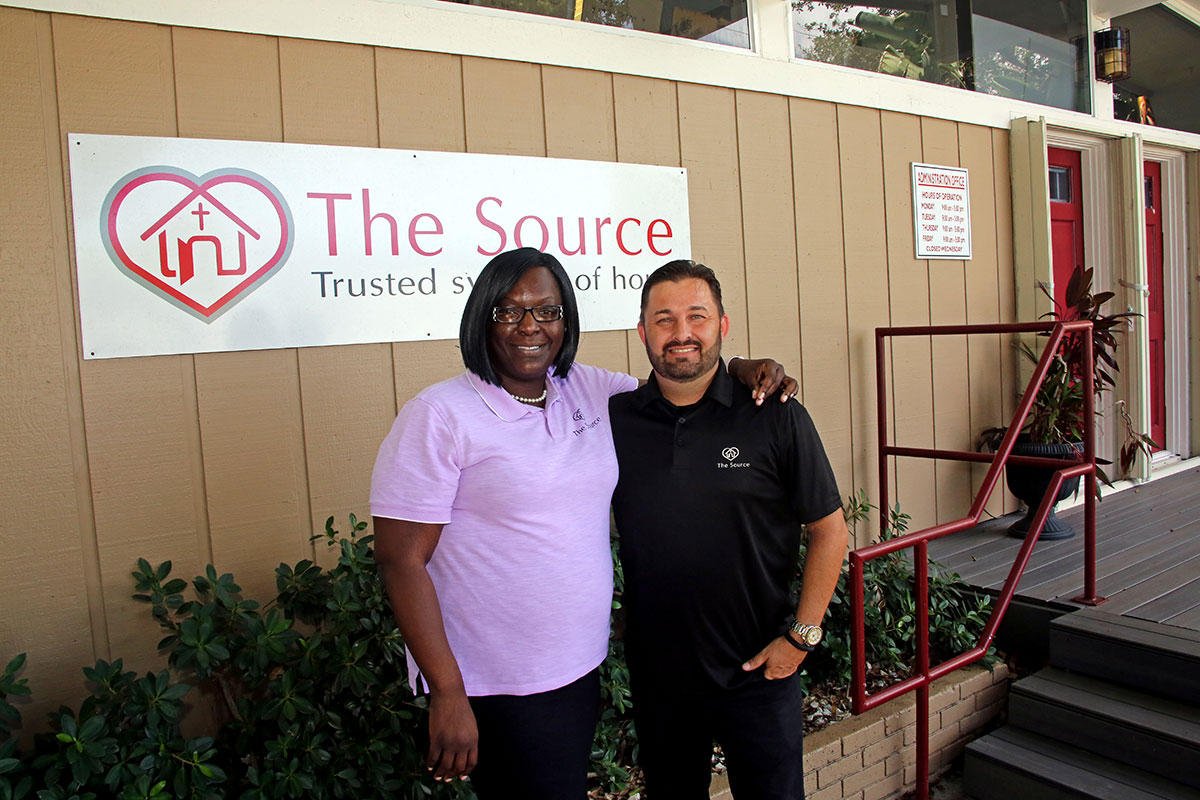
Providing assistance through public and charitable commitments
BY GREG GARDNER
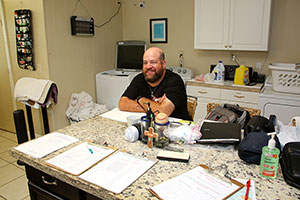
For people who are homeless in the tri-county area, there are a variety of places to receive immediate care for their physical and mental well-being.
Non-profit organizations with hundreds of volunteers support efforts to provide medical treatment, mental health counseling and services that include meals, clothing and rides to doctors’ appointments.
The network of people committed to helping others on the Treasure Coast links agencies, which refer medical services to residents of Martin, Indian River and St. Lucie counties.
Who pays for the cost of homeless medical care depends on what county people live in.
St. Lucie County has two for-profit hospitals. Homeless and those without insurance or Medicaid benefits can apply for medical care through the Health Access Network Delivery System (HANDS), which relies on donations, fund-raising efforts and county funds to pay for treatment.
HANDS provides medical care for needy individuals and homeless people, often referred by other agencies, including New Horizons, Mustard Seed Ministry and the Treasure Coast Food Bank.
“We provide the health care they would struggle to get,” says Susie Burnham, HANDS patient intake navigator. “We are a stepping stone to access to the health care they need. We have a lot of resources.”
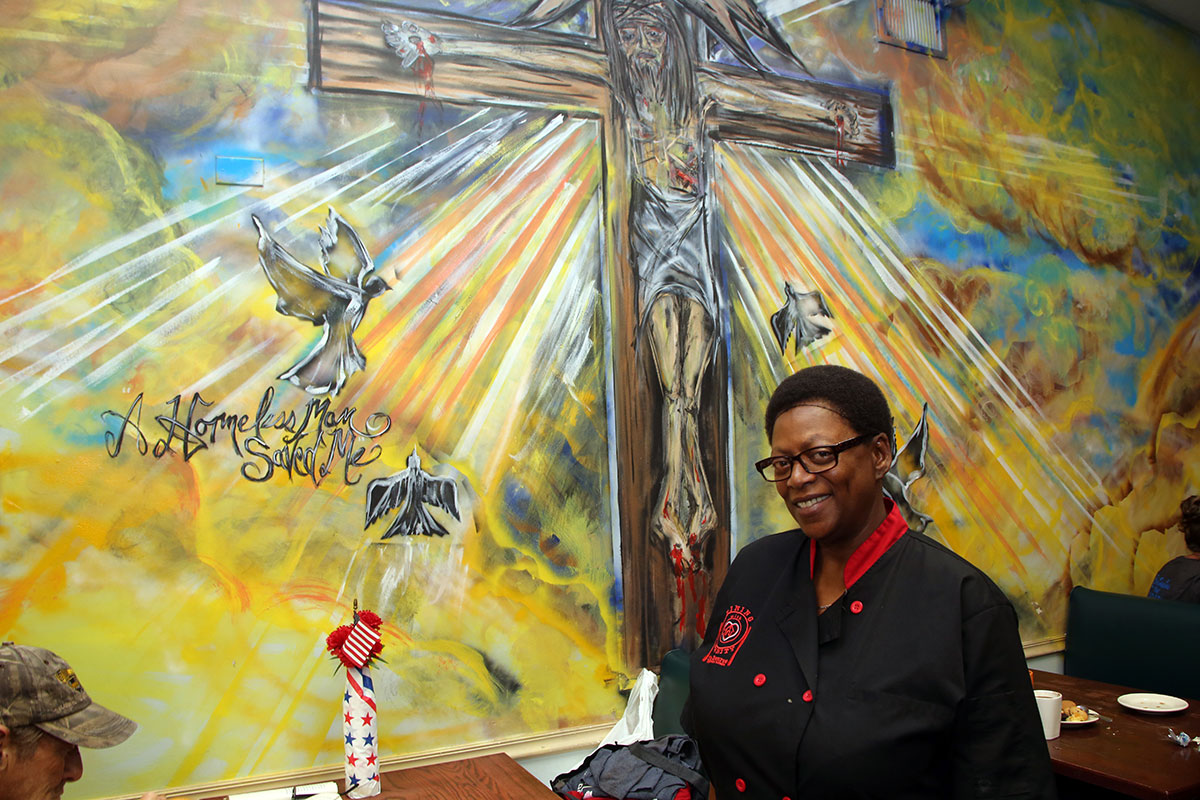
LOVE AND HOPE
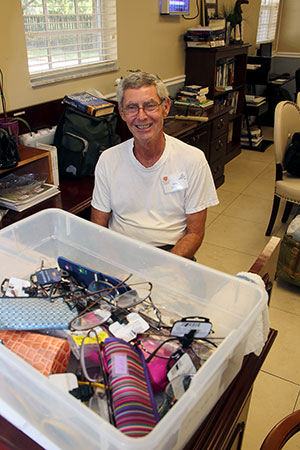
Martin County, also with for-profit hospitals, has the Volunteers in Medicine (VIM) organization to treat homeless and those without insurance. VIM also relies on donated treatment from the medical community and more than a dozen service providers. Spending 98 percent of $10 million annually, VIM treated more than 11,000 patients last year using donations and fund-raisers to cover costs.
VIM’s motto is “The care is free — the treatment priceless.”
“A few years ago, our relationship with LAHIA (Love and Hope in Action) was formed and we are lucky to have them,” says Kim Ouellette, case manager for VIM. “They keep people on track with their appointments. It’s a little harder with homeless patients because of their barriers, no phone or transportation. If we screen them in their environment, we enroll more of them. It’s challenging for providers because it is hard to get better when you are living outside and not getting enough sleep. It is also hard to go hungry in this county, but that doesn’t mean people are eating the right foods.”
LAHIA, in Martin County since 2009, has been operating solely on donations and grants. When a new kitchen was needed, an anonymous donor wrote a check. With more than 150 volunteers helping out, LAHIA offers breakfast, showers, clothing and a path to receive medical care for homeless people.
“People come in, and they are filthy and they smell, but when they take a shower, it changes their psyche,” says marketing manager Linda Wilhelm. “It helps with their self-confidence. Cleanliness is a big deal. You help prevent the spread of disease through cleanliness. It is not just the food, but it is a social time, and many know each other.”
Monthly, 500 clients use six showers to begin their mornings. The clothing pantry offers a selection of clean, donated clothing.
“You come here, have a shower and breakfast and are ready to face the challenges of the day,” says Wilhelm. “It is a little bit of comfort from the elements, being in the air conditioning instead of out in the heat and living in a tent. This is not a soup kitchen. We serve a well-rounded meal to cover all the food groups.”
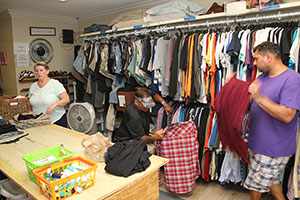
HEALTH SCREENINGS
Often seen ailments include diabetes, high blood pressure, sores from ant bites or exposure, broken limbs, abscessed teeth and other injuries, sometimes from bicycle accidents.
Martin County Health Department staff visit frequently to educate volunteers and screen people for diseases, including HIV and hepatitis C. Hepatitis A vaccine and flu shots are provided.
Even before the recent hepatitis A cases on the Treasure Coast, all three county health departments were proactive
in screening and vaccinating homeless people to prevent an outbreak.
“It is a high-risk population and we explain how diseases are transmitted and how they can prevent them,” says Wilhelm. “This is a huge place for resources. We help people get paperwork and either a bus pass or ride to their medical appointments. If someone is ready to go to treatment (for substance abuse) we will make sure they have a bed. VIM is a godsend for those people who have no medical care.”
Twice-weekly counselors meet individually with those who seek advice for anger management, co-dependence and depression among other issues. When clients are referred to VIM, they receive an hour-long physical by a primary care doctor for background, blood work, diagnostic testing and referrals to specialists.
Bryan Boukat worked as an electrician for defense contractor United Technologies in Connecticut before he came to Florida to take care of his elderly parents. They both became ill and died, leaving him with their medical bills and homeless. In August he was living in a tent, working as a day laborer, looking to put a roof over his head. “I couldn’t survive without LAHIA,” says Boukat, who volunteers at the center. “I can’t find anyone who wants to hire a 61-year-old electrician to work outside in the Florida heat. It is an experience living in the woods.”
MIND, BODY AND SOUL
LAHIA was patterned and inspired by The Source in Vero Beach, which has been serving the homeless for 25 years. Seven days a week, 200 meals a day are provided, breakfast, lunch and dinner. The homeless are fed in a small building at the end of an industrial street. The facility also has laundry services and showers.
“The hospitals waive the fees for homeless people, but you won’t get surgery,” says Anthony Zorbaugh, executive director for The Source. “Individuals must pay for prescriptions, and churches and other community non-profits help pay for medications when they can. We also transport people to medical appointments. We partner with the Indian River County Health Department to give hepatitis A shots. Once a month the Visiting Nurse Association bus is here for health screenings, for people to see a doctor and to register for health care.
“We feed the mind, body and soul, and it stabilizes them for the time being,” says Zorbaugh. “We are working to open an overnight facility (elsewhere). The Source operates with 12 staff members and 100 volunteers, funded by grants and donations. Its motto is “The trusted Symbol of Hope for the Poor and Homeless.”
Zorbaugh adds, “We couldn’t do this work without the amazing people, our board of directors, staff and volunteers who are on this journey together.”
Through an extraordinary culinary program seeded with grant money, The Source has graduated almost one worker a month the past two years to go on to work in Indian River County restaurants. Catering students receive a stipend.
Helen Ayers, 58, is three weeks into the program and already has a job at a local restaurant. “I was on disability,” says Ayers. “I have a job now and I needed that push and those encouraging words. I came here to eat, and they made me feel really good about myself. Church every day helps me out also.” Ayers was hopeful she would be settled in soon.
Because the hospitals in Indian River County operate under a special taxing district, homeless people receive up to one year of subsidized, basic health care.
